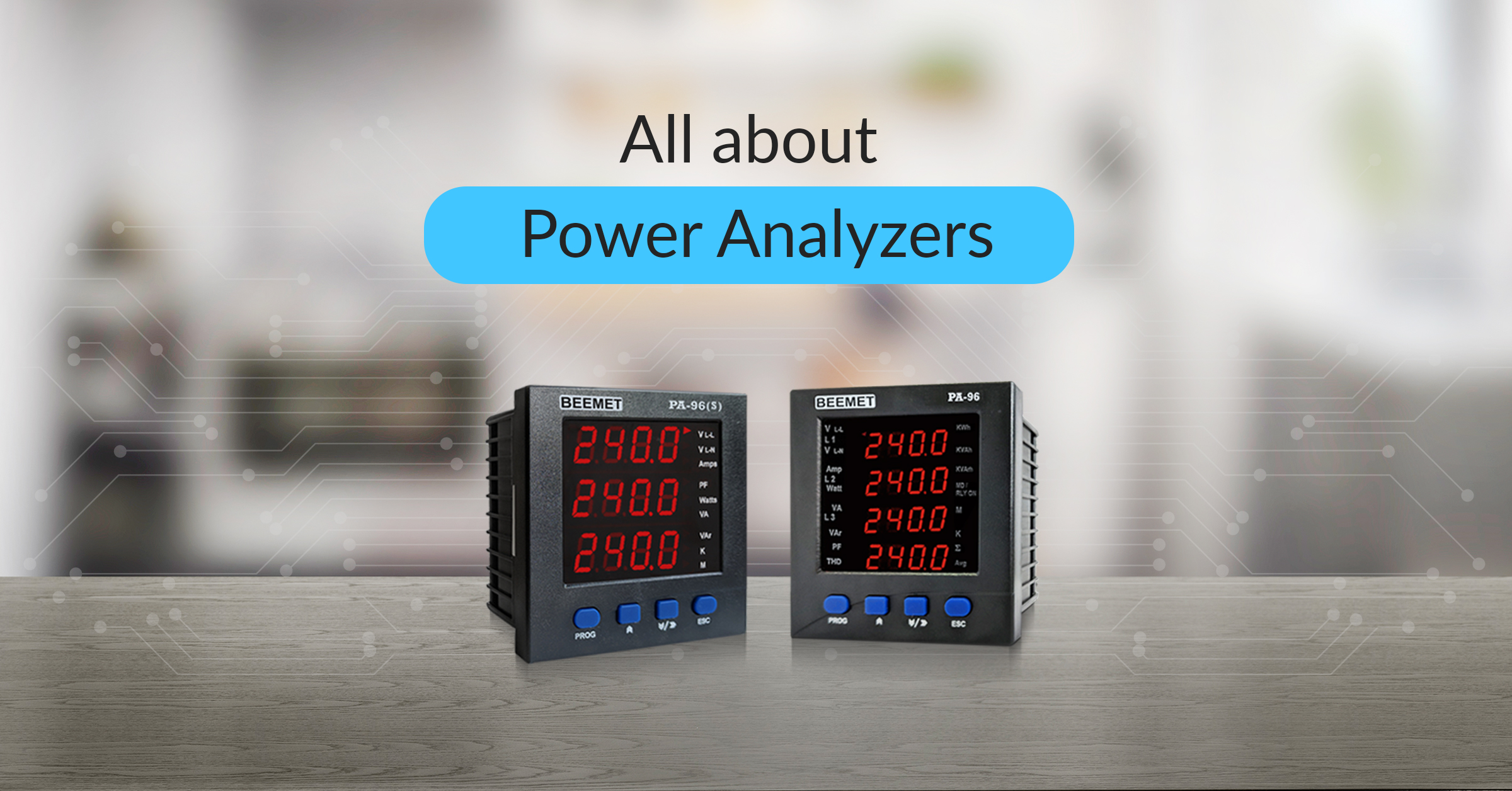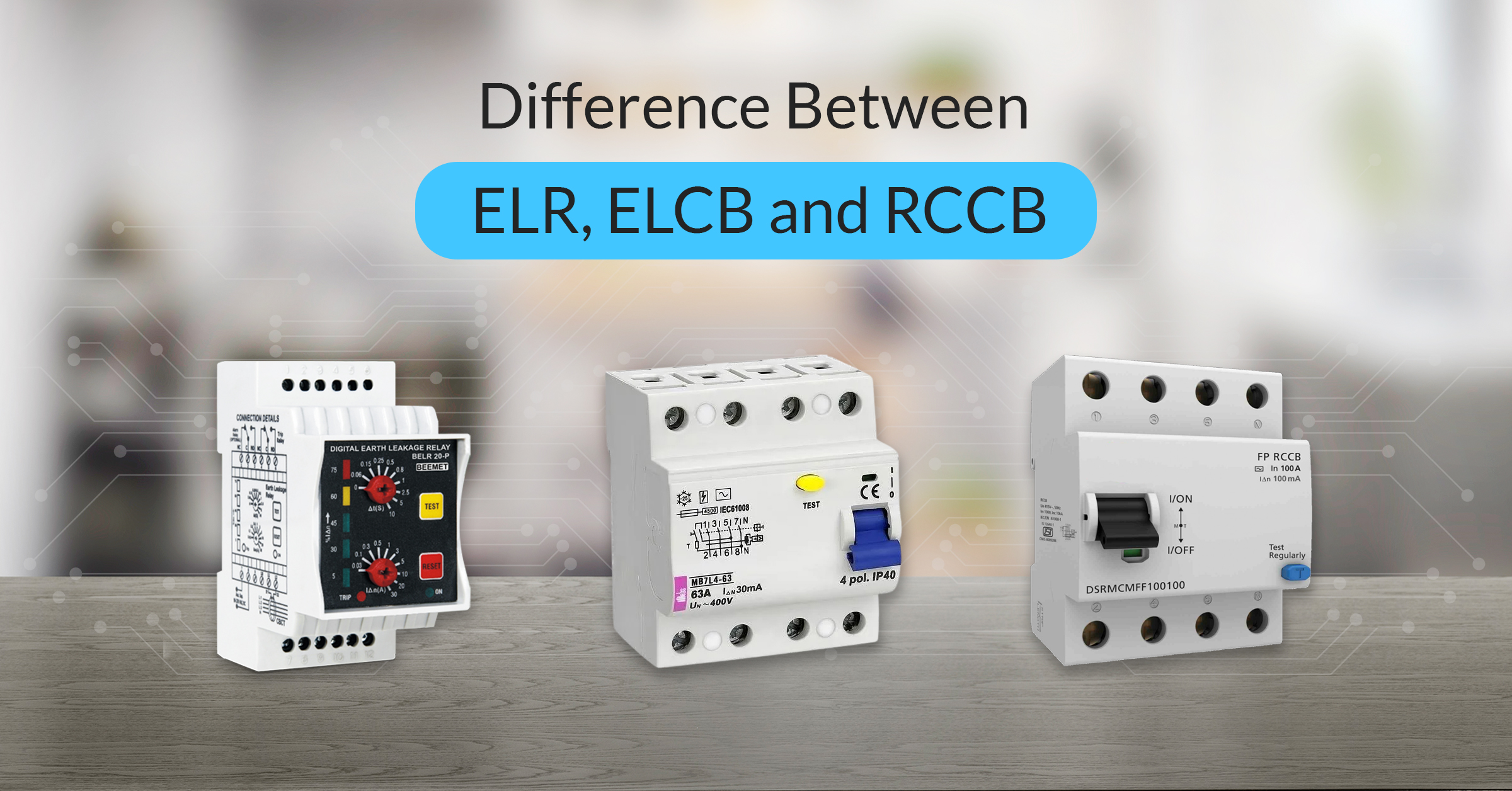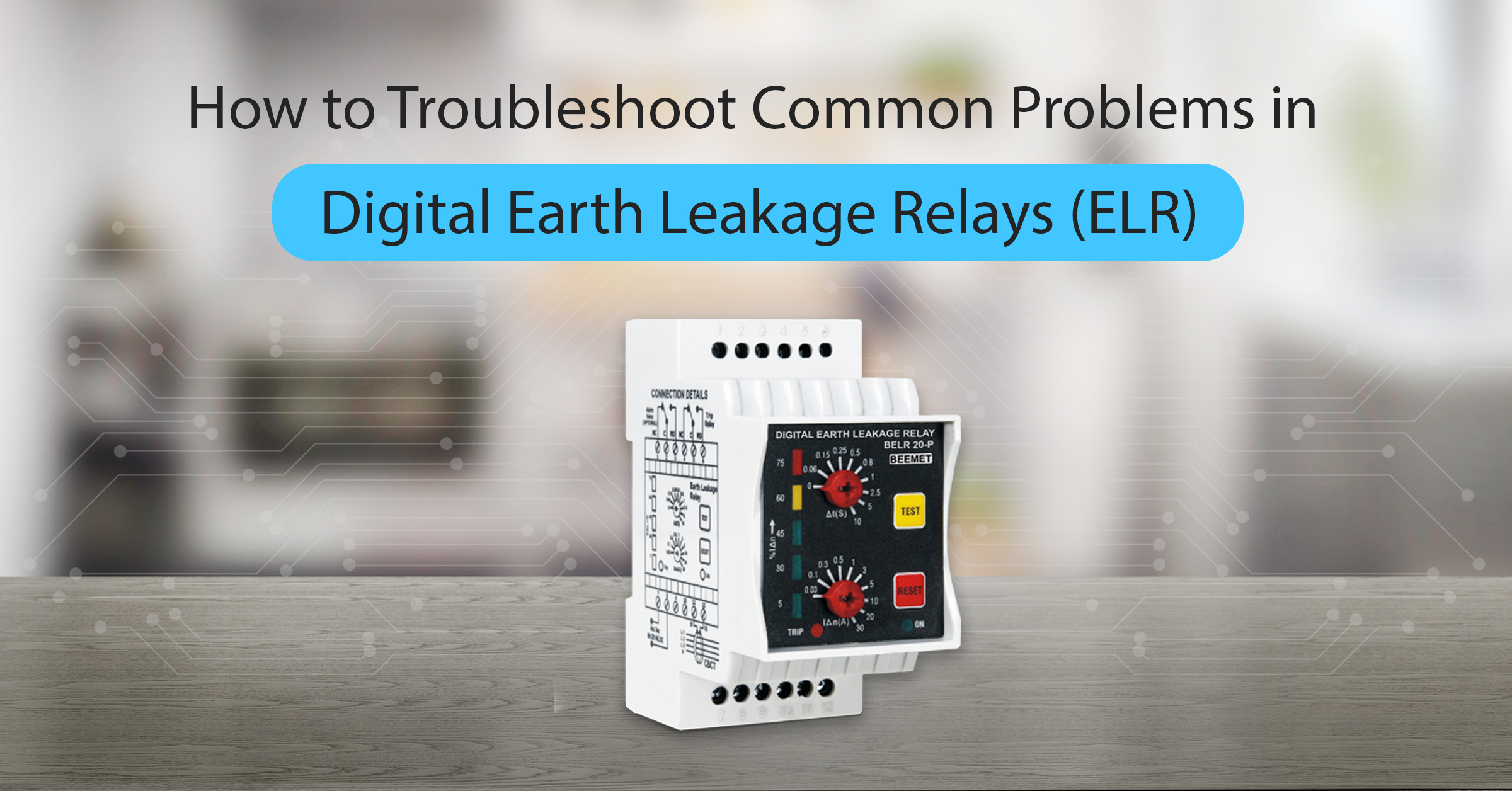In this blog, we will dive deep into the world of power analyzers. We will cover topics like what they are, their different types, how they work, and their numerous advantages.
What are Power Analyzers?
Power analyzers are specialised instruments used to measure and analyze the flow of electricity within a system.
Imagine a magnifying glass for your electrical machine. That’s basically what a power analyzer is. It provides a comprehensive picture of electrical consumption which includes vital details like voltage, current, power factor, and even energy usage over time.
In simpler terms, an energy analyzer acts as a window into the inner workings of your electrical device. It exhibits hidden inefficiencies, identifies areas of immoderate electricity consumption, and empowers you to optimize your power utilisation. By understanding how your electrical system simply works, you can make informed decisions which can lead to significant cost savings and improved efficiency.
Different Types of Power Analyzers:
There are two main categories of power analyzers, each catering to specific needs:
1. Digital Power Analyzers:
These are the modern-day workhorses of the electricity analysis industry. They leverage the energy of virtual technology to deliver enormously correct measurements. Imagine a high-tech assistant on your electrical gadget. Digital electricity analyzers are equipped with advanced features like:
- Data Logging: They can record and store historical data on diverse electrical parameters which allows us to track trends and identify patterns in energy consumption.
- Graphical Displays: They present complex data in a consumer-friendly format with graphs and charts which makes it easier to visualise and examine trends.
- Communication Capabilities: Many virtual models boast the potential to communicate with other gadgets or software programs. This allows remote tracking and analysis to keep an eye on electrical machines from anywhere, at any time.
2. Analog Power Analyzers:
Analog power analyzers utilize analog displays and dials to give readings. While no longer as sophisticated as their virtual counterparts, they are able to still offer basic power consumption readings. They are generally used for simpler applications.
Working Principle
The magic behind an energy analyzer lies in its capacity to measure voltage and current simultaneously. But it doesn’t stop there! By performing calculations based on these measurements, power analyzers unlock a variety of electrical parameters, which include:
- Active Power (Watts): This reflects the actual measurement of your electrical device – the actual amount of electrical work being done. It’s the power that gets things running, powering your equipment and lighting.
- Reactive Power (VAR): It’s the non-working power which is used to maintain the electrical field important for the flow of active electricity. It is critical for the right functioning of your electrical system.
- Apparent Power (VA): This combines each active and reactive energy. It encompasses all of the strength flowing in the system.
- Power Factor: This is a vital performance indicator. It indicates how efficiently the electric power is used. A high power factor indicates efficient use of electricity, at the same time as a low power factor indicates room for improvement.
Advantages of Using Power Analyzers
Power analyzers are more than power measuring equipment. They provide a wide range of benefits which can significantly impact your bottom line and overall electrical system health such as:
- Cost Savings: By figuring out regions of excessive electricity consumption, power analyzers empower you to take action accordingly. You can pinpoint equipment that’s guzzling energy and implement targeted measures to reduce your electricity bills. Think of it as a financial detective, helping you uncover hidden costs and save money on your energy expenses.
- Improved Efficiency: Power analyzers are like efficiency coaches to your electric machine. They assist you pick out areas for optimization and make certain your device functions at its most efficient level. This can cause advanced gadget performance and maintenance.
- Enhanced Power Quality: Voltage fluctuations, harmonics, and different strength best problems can wreak havoc to your gadget and disrupt operations. Power analyzer can easily detect those troubles and permit you to take corrective actions. This can prevent steeply-priced equipment failures and ensure smooth operation of your electrical system.
- Better Maintenance Practices: By reading the past data and figuring out developments in energy intake, power analyzers can help predict capacity equipment failures. This enables proactive upkeep scheduling, permitting you to deal with minor problems earlier than they compound into major issues.
- Advancements in Technology: The power analysis industry is constantly evolving. We can expect to see even more sophisticated digital analyzers with enhanced features like:
- Artificial Intelligence (AI): AI-powered algorithms could be integrated into power analyzers to analyze data, identify trends, and predict potential problems.
- Cloud-Based Data Management: Cloud technology could enable power analyzers to store and analyze data remotely. This makes it accessible from anywhere and facilitates real-time monitoring and decision-making.
Applications:
The advantages of electricity analyzers amplify across a wide variety of industries and applications. Here are a few high examples:
- Manufacturing: In manufacturing centers, power analyzers may be used to optimize production line efficiency. Producers can take steps to reduce energy intake and lower their operating charges. Additionally, power analyzers can help make certain the fine of manufactured goods with the aid of tracking the power supply to important gadgets.
- Building Management: Building managers can leverage power analyzers to display power intake in commercial and home buildings. This statistics can be used to pick out regions for improvement, which includes inefficient lighting structures or outdated home equipment.
By implementing power-saving measures based on the records supplied via electricity analyzers, constructing proprietors can substantially reduce their electricity bills and make a contribution to a more sustainable future.
- Power Generation: Power era plants depend upon strength analyzers to make sure efficient power technology and distribution. These devices assist monitor critical parameters like voltage, contemporary, and electricity issues to optimize the energy technology procedure and minimize power losses.
- Renewable Energy: The increasing adoption of renewable energy resources like solar and wind strength brings new challenges. Power analyzers play a vital position in evaluating the performance of sun panels, wind mills, and different renewable power systems.
By monitoring energy manufacturing and figuring out inefficiencies, power analyzers can help make sure those renewable electricity operate at maximum efficiency.
BEEMET for Top-Tier Power Analyzers
BEEMET is a trusted leader in panel meters. We understand the importance of having the right tools for the job. That’s why we offer a comprehensive range of high-quality power analyzers to suit your specific needs.
Our power analyzers are designed to provide you with precise measurements and advanced features, empowering you to make informed decisions regarding your electrical system.
Don’t hesitate to contact our team for further assistance. You’ll gain valuable insights into your energy consumption, identify areas for improvement, and ultimately achieve significant cost savings and improved efficiency. They can answer your questions and guide you towards the best power analyzer solution for your needs.
FAQs:
- What’s the difference between a power analyzer and a power meter?
Power meters usually offer fundamental measurements like voltage, current, and energy. Power analyzers offer a greater comprehensive evaluation, which include electricity components, harmonics, and power intake.
- Do I need a digital or analog power analyzer?
If you require detailed data and remote tracking skills, a digital energy analyzer is ideal. For fundamental programs in which you best need essential electricity consumption readings, an analog model would possibly suffice. Consider your specific needs and price range before making any decision.
- How do I choose the right power analyzer?
Here are few key factors to consider:
1. Ensure the strength analyzer can deal with the voltage and current levels you may be measuring
2. Choose an analyzer with the capabilities that great suit your utility
3. Determine your budget and find an analyzer that offers the features you need within your price range
- Can power analyzers help improve energy efficiency?
Absolutely! By figuring out areas of excessive power intake, energy analyzers empower you to put in force energy-saving measures. This can lead to cost savings and enhance your efficiency.



